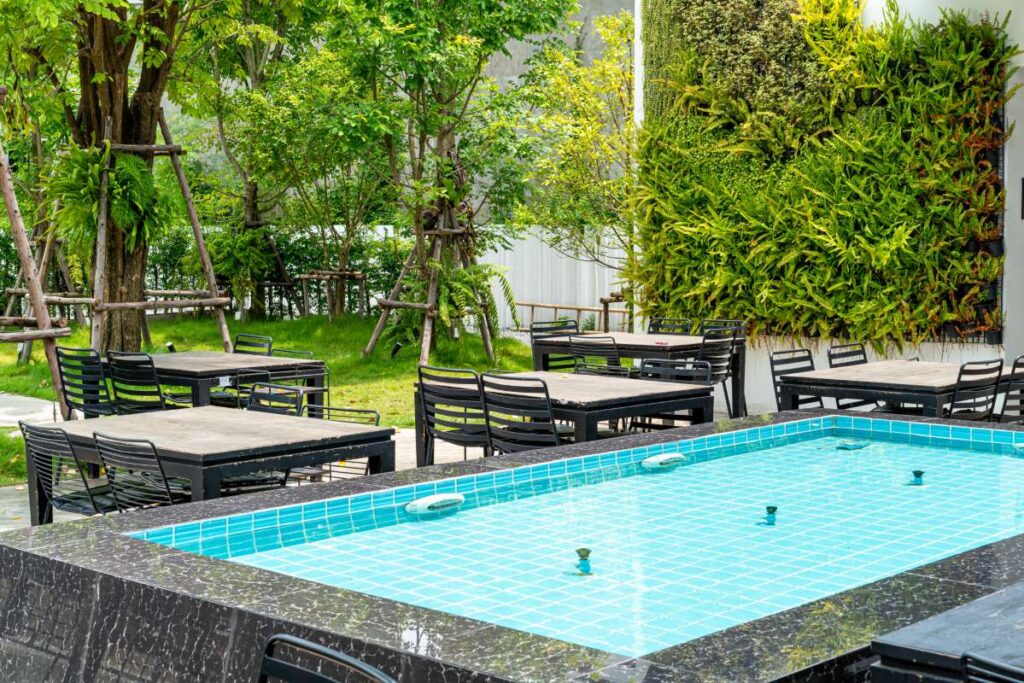Delve into the world of HOA service requests in Delray Beach, Florida, and understand the essential frameworks that help pool professionals navigate this vital aspect of community management.
Pool Pros’ Guide to HOA Service Requests in Delray Beach, Florida
Understanding the dynamics of Homeowners Associations (HOAs) is crucial for pool service professionals in Delray Beach, Florida. HOAs play a significant role in managing community amenities, including pools, and ensuring that these facilities meet safety and aesthetic standards. This comprehensive guide will unpack the intricacies of HOA service requests, highlighting the responsibilities of pool professionals, the best practices for addressing requests, and the broader implications for the community. Whether you are a seasoned pool service provider or a newcomer to the industry, mastering the nuances of HOA interactions can enhance your business operations and community relationships.
The pool maintenance industry is unique, especially in areas like Delray Beach, where beautiful weather and community-centric lifestyles encourage swimming pool ownership. Homeowners Associations are tasked with the upkeep of shared amenities, and pool service professionals must navigate the service request processes these organizations set in place. This blog post will guide you through the essential aspects of handling HOA requests effectively while promoting a positive image and reliable service.
Moreover, understanding the legal framework and community expectations around HOA service requests can foster trust and long-lasting relationships with clients. As we delve into the specifics, we will cover practical tips, best practices, and insights into how these frameworks influence pool service operations.
The Role of HOAs in Pool Management
Homeowners Associations serve as governing bodies that manage the interests and welfare of residents within a community. In Delray Beach, HOAs often oversee amenities like swimming pools, ensuring they are well-maintained, compliant with safety regulations, and aesthetically pleasing. This role can sometimes lead to complex interactions with pool service professionals, particularly when addressing service requests.
Each HOA typically has a set of bylaws detailing the expectations for maintenance and operational standards. For pool service professionals, understanding these regulations is paramount. An HOA may request regular maintenance checks, safety inspections, or repairs due to unforeseen issues, such as a malfunctioning filtration system or pool surface damage caused by weather conditions.
According to a report by the Community Associations Institute, approximately 73 million Americans live in community associations, which underscores the significance of HOAs in daily life. This trend highlights the opportunity for pool professionals to align their services with the needs of these communities. Ensuring compliance with HOA guidelines not only enhances service delivery but also builds credibility among residents and board members.
Common HOA Service Requests
Pool service professionals frequently encounter specific types of requests from HOAs. Understanding these common requests can help streamline operations and foster better communication. Typical requests often include routine maintenance, water quality testing, and emergency repairs.
Routine maintenance involves regular cleaning, chemical adjustments, and equipment checks to ensure optimal pool conditions. HOAs may provide specific schedules for these services, and adherence to these timelines is essential. Water quality testing is another critical request, as maintaining safe and clean swimming conditions is a top priority for any community pool.
Emergency repairs, such as fixing leaks or equipment malfunctions, can arise unexpectedly, necessitating prompt action from pool service providers. For example, if a filtration system fails, it can lead to water quality issues that jeopardize the pool’s usability. Prompt responses to these requests not only demonstrate professionalism but also help in retaining HOA contracts and ensuring community satisfaction.
Effective Communication with HOAs
Establishing effective communication channels with HOAs is vital for successful service provision. Clear communication helps build trust and ensures that both parties are aligned on expectations and responsibilities. Regular updates regarding service schedules, maintenance issues, or recommended repairs can enhance transparency.
Moreover, attending HOA meetings can provide invaluable insights into community priorities and concerns. By engaging directly with board members and residents, pool service professionals can better understand the specific needs of the community, allowing them to tailor their services accordingly. This proactive approach can lead to long-term contracts and positive word-of-mouth referrals.
Implementing a feedback system is another excellent way to foster communication. Encouraging residents to share their experiences can provide valuable insights into service quality and areas for improvement. This initiative not only helps identify issues but also demonstrates commitment to community satisfaction and service excellence.
Best Practices for Handling Service Requests
Handling service requests from HOAs can be streamlined by adhering to several best practices. First and foremost, timely responses are critical. When a request is received, acknowledging it promptly can set the tone for effective service delivery. Subsequent follow-ups can further reassure the HOA that their needs are being prioritized.
Utilizing technology to manage service requests can also enhance efficiency. Implementing a customer relationship management (CRM) system or service management software can help track requests, schedule maintenance, and maintain communication with HOAs. This approach minimizes the risk of oversight and enables a structured response to service requests.
Additionally, documenting all service interactions is essential. Keeping records of requests, maintenance activities, and communications can protect both the service provider and the HOA in case of disputes or misunderstandings. These records can serve as a reference for future services and can demonstrate accountability.
Understanding Legal and Compliance Standards
In Delray Beach, pool professionals must adhere to various legal and compliance standards set by local and state regulations. This includes ensuring that pools meet safety codes, undergo regular inspections, and maintain proper sanitation standards. Compliance is not just about following rules; it’s about protecting the community and ensuring a safe environment for all residents.
Moreover, understanding the specific bylaws of the HOA is crucial. Each community may have different requirements for maintenance and service frequency. Familiarity with these regulations can help in aligning services with community expectations and avoiding potential fines or disputes.
Engaging with legal counsel or regulatory bodies can provide further clarity on compliance standards. Staying informed about changes in regulations can also position pool professionals as knowledgeable leaders in the field, reinforcing their credibility among HOAs.
Building Long-Term Relationships with HOAs
Establishing and maintaining long-term relationships with HOAs is crucial for sustained business success. Understanding community needs and adapting services accordingly is key. This includes being responsive to feedback and making necessary adjustments to service offerings.
Participating in community events or sponsoring local initiatives can also enhance visibility and foster goodwill among residents. By becoming an active member of the community, pool service professionals can create positive associations with their brand, leading to referrals and repeat business.
Furthermore, offering additional services, such as educational workshops on pool maintenance tips or safety protocols, can position professionals as invaluable resources within the community. Empowering residents with knowledge not only enhances service satisfaction but also builds loyalty and trust.
Challenges Faced by Pool Service Professionals
While navigating HOA service requests, pool service professionals may encounter various challenges. One common issue is managing expectations within the community. Residents may have differing opinions on service frequency and quality, leading to potential conflicts.
Budget constraints can also impact the scope of services provided. HOAs may have limited funds for pool maintenance, which can lead to difficult conversations about service pricing and necessary repairs. Pool service professionals must be prepared to provide value and potentially adjust service offerings to meet budgetary constraints while maintaining quality.
Additionally, seasonal fluctuations in service demand can pose challenges. For example, during peak swimming months, the volume of service requests may increase significantly, requiring careful scheduling and resource allocation. Balancing these demands while continuing to deliver high-quality service is essential for maintaining a positive reputation.
Conclusion
Successfully navigating HOA service requests in Delray Beach requires a blend of effective communication, adherence to regulations, and a commitment to community engagement. By understanding the dynamics at play, pool service professionals can build lasting relationships with HOAs, ensuring their services are not just about maintenance but also contributing to the overall community experience.
Ultimately, the importance of professionalism and responsiveness cannot be overstated. As communities grow and evolve, staying attuned to the needs of both HOAs and residents will position pool service professionals as leaders in the industry.
For those looking to enter or expand within the pool maintenance industry, exploring opportunities through established routes can provide immediate income and access to a loyal customer base. Discover [Pool Routes for Sale](https://pool-routes-for-sale.com/) and take the next step in your pool service journey today.



